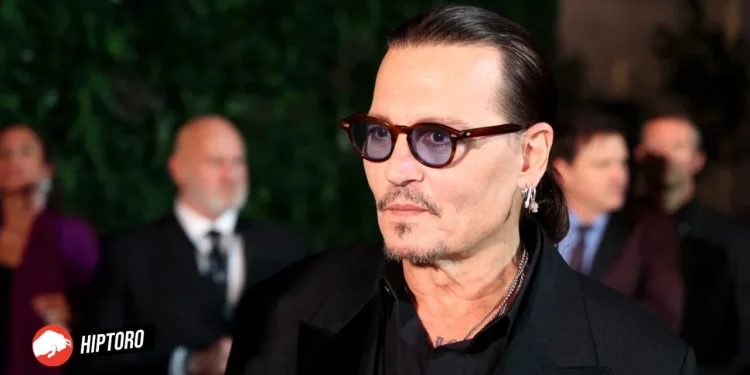To embark on this journey, we’ll begin with a detailed introduction to Johnny Depp and his cinematic universe before diving into the comprehensive analysis of his top 10 movies. Johnny Depp, an American actor, producer, and musician, has long been a fixture in Hollywood, known for his versatility and dedication to transforming into complex characters. His career spans over three decades, marked by collaborations with renowned directors such as Tim Burton and roles that have become iconic in the film industry. Depp’s ability to immerse himself into his characters, coupled with his unique choice of roles, has cemented his status as a Hollywood icon.
Johnny Depp’s filmography is a testament to his range as an actor, from the swashbuckling pirate Captain Jack Sparrow in the “Pirates of the Caribbean” series to the eccentric chocolatier Willy Wonka in “Charlie and the Chocolate Factory” and the investigative journalist Paul Kemp in “The Rum Diary”. His roles often embody characters with a complex mix of vulnerability and strength, showcasing Depp’s skill in bringing depth and humanity to his performances. As we explore his top 10 movies, we will delve into the essence of what makes each film unique and how Depp’s performances contribute to their success and lasting impact on audiences and the film industry.
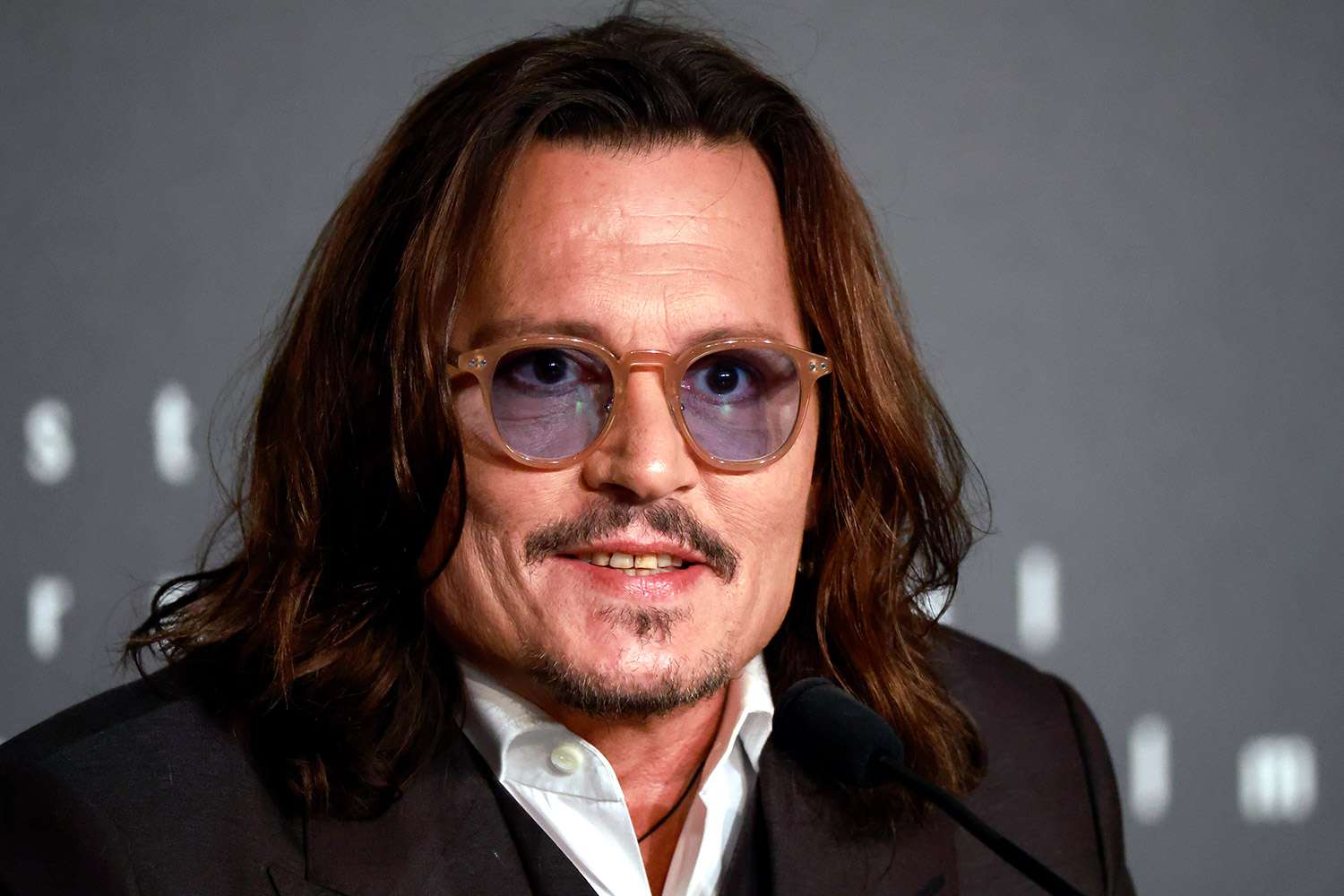
Johnny Depp, an actor of immense versatility and depth, has carved a unique niche for himself in the landscape of American cinema. Born on June 9, 1963, in Owensboro, Kentucky, Depp embarked on a career that would see him transform from a teen idol to one of the most respected and eclectic actors of his generation. His journey in the entertainment industry began with modest roles, but it was his role in the 1980s television series “21 Jump Street” that first catapulted him into the spotlight. However, it is his collaborations with directors like Tim Burton and his choice of complex, eccentric characters that have defined his career and established his legacy as a true artist.
Johnny Depp’s filmography is a testament to his range as an actor, encompassing a wide array of genres and characters. From the gentle, scissor-handed Edward in “Edward Scissorhands” to the charming yet devious Captain Jack Sparrow in the “Pirates of the Caribbean” series, Johnny Depp has consistently demonstrated an extraordinary ability to fully immerse himself in his roles, often transforming physically and emotionally to bring his characters to life. His performances are marked by a deep emotional resonance and a unique ability to convey complex psychological states, making him a favorite among audiences and critics alike.
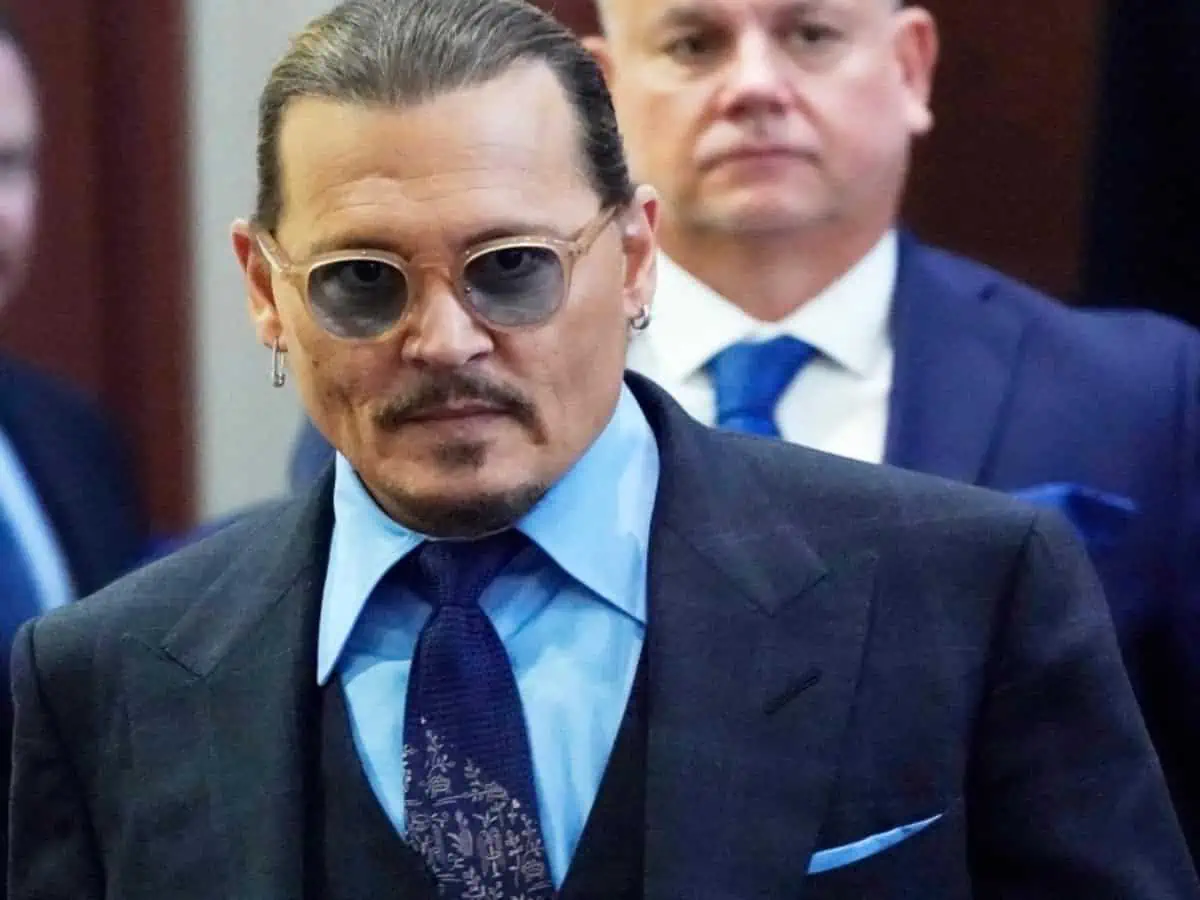
Beyond his work in front of the camera, Johnny Depp has also ventured into producing and has shown a keen interest in music, further showcasing his artistic versatility. Despite facing personal and legal challenges in recent years, Depp’s contribution to the film industry remains undeniable. His dedication to his craft, along with his ability to continually reinvent himself and explore the depths of the characters he portrays, ensures his place among the pantheon of great American actors.
Johnny Depp’s career is not just a collection of performances but a reflection of his journey as an artist, continually pushing boundaries and challenging expectations. His legacy is one of creativity, resilience, and an unwavering commitment to storytelling, making him a fascinating and enduring figure in contemporary cinema.
Top 10 Best Movies of Johnny Depp
1. “Pirates of the Caribbean: The Curse of the Black Pearl” (2003)
“Pirates of the Caribbean: The Curse of the Black Pearl” is a swashbuckling adventure film that catapulted Johnny Depp into the international spotlight for his role as Captain Jack Sparrow. Directed by Gore Verbinski, this film is a blend of action, adventure, and fantasy that redefined pirate-themed cinema for a new generation. Johnny Depp’s portrayal of Sparrow, with his eccentric mannerisms and unpredictable behavior, became instantly iconic, earning him an Academy Award nomination for Best Actor. The film also stars Orlando Bloom, Keira Knightley, and Geoffrey Rush in pivotal roles, contributing to its massive success at the box office and positive critical reception.
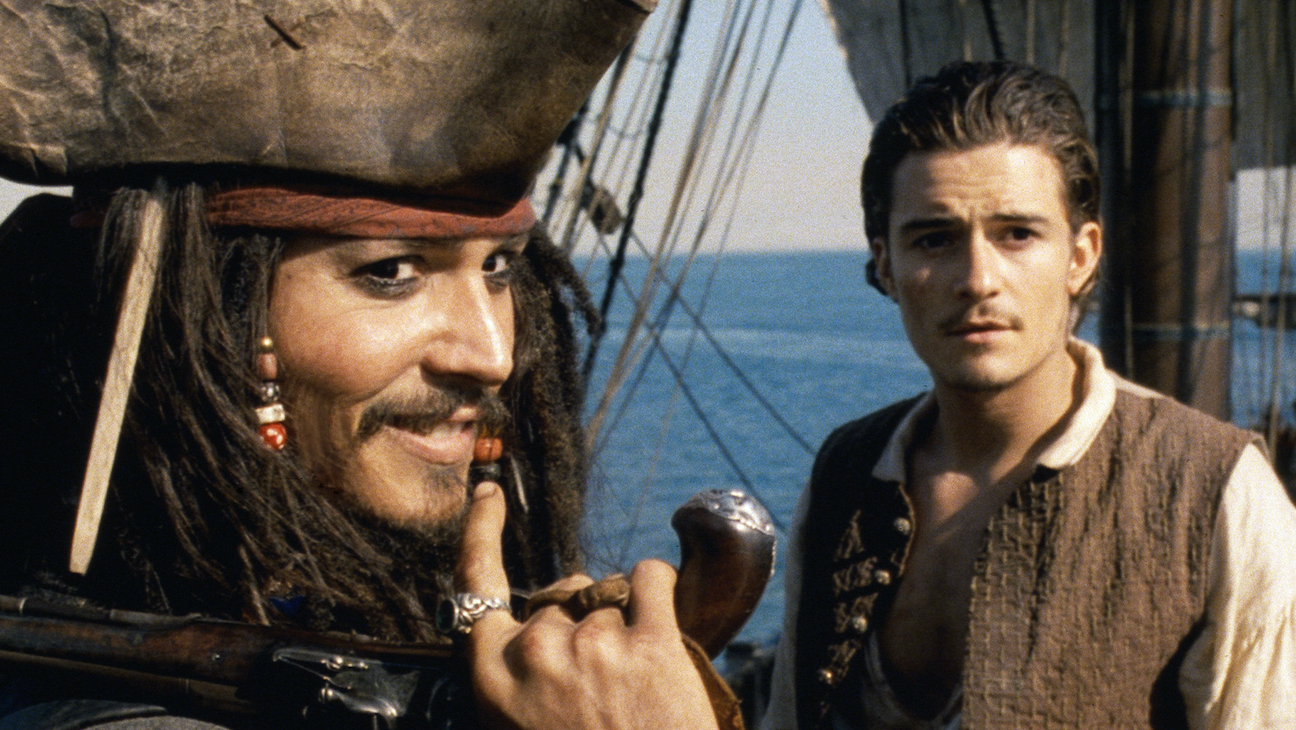
The narrative follows Sparrow’s quest to reclaim his ship, the Black Pearl, from his mutinous first mate, Hector Barbossa, and rescue Elizabeth Swann, played by Knightley, from Barbossa’s crew, who believe she is the key to breaking their curse. Johnny Depp’s performance is the heart of the film, bringing humor, depth, and a sense of unpredictability to the character of Sparrow. The movie’s success led to the creation of a franchise, making Captain Jack Sparrow one of Johnny Depp’s most beloved and recognizable characters.

The film’s blend of thrilling action sequences, engaging storytelling, and memorable characters, along with Johnny Depp’s standout performance, not only made it a commercial success but also a significant cultural phenomenon. It demonstrated Depp’s ability to carry a blockbuster film while maintaining his artistic integrity and commitment to character development. “Pirates of the Caribbean: The Curse of the Black Pearl” remains a pivotal movie in Depp’s career and a favorite among audiences worldwide.
2. “Edward Scissorhands” (1990)
“Edward Scissorhands,” directed by Tim Burton, stands as a landmark film in Johnny Depp’s career, marking the first of many collaborations between the actor and director. This gothic fairy tale tells the story of Edward, an artificial man with scissors for hands, who is brought into a suburban community by a kind-hearted Avon saleswoman. The film explores themes of isolation, humanity, and the harsh judgments of society, with Johnny Depp’s portrayal of Edward offering a poignant look at the character’s innocence and longing for connection.
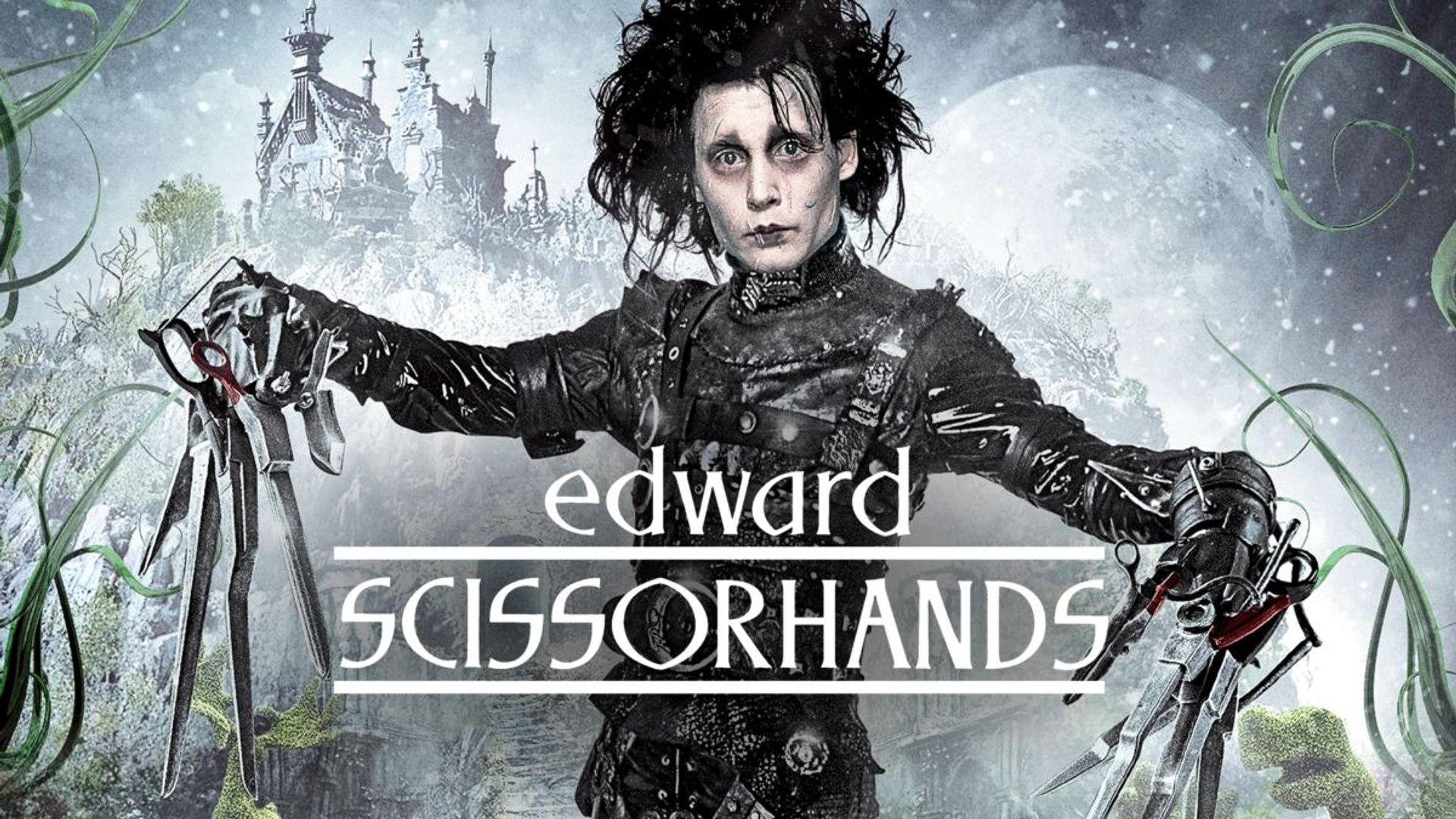
Johnny Depp’s transformation into Edward is remarkable, utilizing minimal dialogue and relying heavily on physical expression and emotive eyes to convey the character’s emotions and thoughts. This performance showcased Johnny Depp’s ability to inhabit deeply complex characters and bring a level of depth and sensitivity that resonated with audiences. “Edward Scissorhands” was both a critical and commercial success, further establishing Depp as a versatile actor capable of transcending traditional leading-man roles.
The visual style of the film, characterized by Burton’s signature gothic aesthetic, creates a fairytale-like atmosphere that contrasts the mundane reality of suburban life. The relationship between Edward and Kim, played by Winona Ryder, is central to the narrative, highlighting themes of love, acceptance, and the pain of being different. Danny Elfman’s hauntingly beautiful score complements the film’s visual and narrative elements, enhancing the emotional impact of Edward’s journey.

“Edward Scissorhands” has endured as a beloved classic, celebrated for its creativity, unique storytelling, and Johnny Depp’s unforgettable performance. The film not only solidified the Depp-Burton partnership but also demonstrated Depp’s willingness to take on challenging and unconventional roles. It remains a testament to his artistic range and commitment to exploring the complexities of the human condition through his work.
3. “Finding Neverland” (2004)
“Finding Neverland” is a semi-biographical film that delves into the life of J.M. Barrie, the Scottish playwright best known for creating Peter Pan. Directed by Marc Forster, this film stands out in Johnny Depp’s filmography as a deeply moving portrayal of the power of imagination and the creation of one of the most enduring stories in children’s literature. Johnny Depp’s portrayal of Barrie is nuanced and introspective, showcasing his ability to capture the essence of a historical figure while bringing a touch of whimsy and heart to the role.
The film explores the relationship between Barrie and the Llewelyn Davies family, who inspired him to write “Peter Pan.” Johnny Depp’s chemistry with the young actors who play the Davies children is remarkable, highlighting the actor’s versatility and ability to engage with his co-stars in a way that feels both genuine and profound. Kate Winslet, who plays Sylvia Llewelyn Davies, and Dustin Hoffman, who plays Barrie’s producer, Charles Frohman, deliver strong performances that complement Depp’s and contribute to the film’s emotional depth.
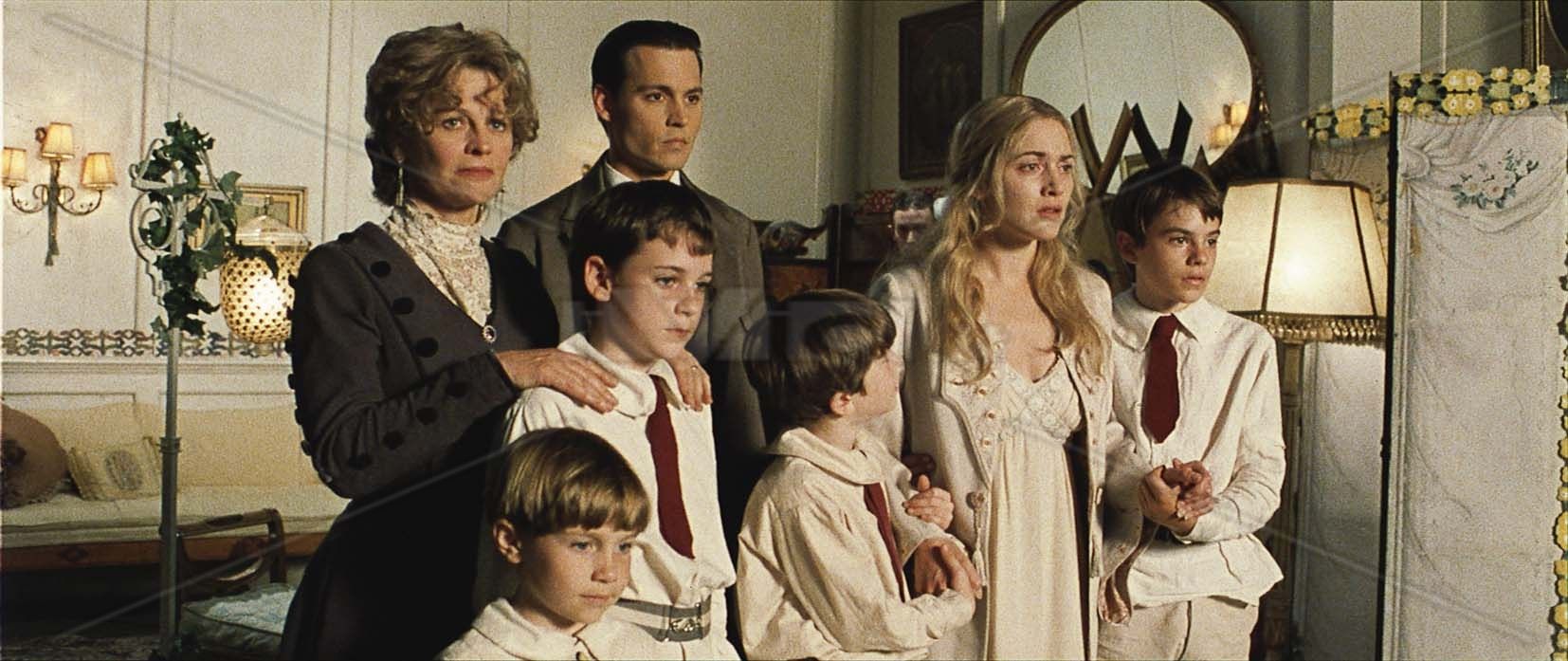
“Finding Neverland” is celebrated for its exploration of themes such as grief, creativity, and the loss of innocence. It beautifully captures the magic of storytelling and the impact it can have on both the storyteller and the audience. The film’s success is in part due to Johnny Depp’s compelling performance, which earned him critical acclaim and several award nominations. His portrayal of Barrie is both subtle and profound, embodying the playwright’s imaginative spirit and compassion.
The film’s visual style, combined with a poignant score by Jan A.P. Kaczmarek, enhances the narrative’s emotional resonance. “Finding Neverland” invites viewers to embrace the power of imagination and the importance of finding joy and wonder in the world, making it a standout film in Johnny Depp’s career for its heartwarming and inspirational message.

“Finding Neverland” not only reinforces Johnny Depp’s status as one of Hollywood’s most versatile actors but also highlights his ability to bring depth and nuance to roles that require a delicate balance of realism and fantasy. It remains a beloved film that resonates with audiences of all ages for its portrayal of love, loss, and the enduring power of imagination.
4. “Sweeney Todd: The Demon Barber of Fleet Street” (2007)
“Sweeney Todd: The Demon Barber of Fleet Street” marks another significant collaboration between Johnny Depp and director Tim Burton, showcasing Depp in one of his most daring and dark roles. This musical horror film, based on the Broadway musical of the same name, tells the tale of Benjamin Barker, aka Sweeney Todd, who returns to London seeking vengeance against those who wronged him. Johnny Depp’s portrayal of Sweeney Todd is both chilling and captivating, earning him an Academy Award nomination for Best Actor.
Depp’s performance is a masterful blend of intensity, despair, and dark humor, embodying the character’s tragic backstory and thirst for revenge. His ability to convey deep emotional pain through song, a departure from his non-musical roles, demonstrates his versatility and commitment to character development. The film’s dark, stylized aesthetic is quintessentially Burton, with Depp’s performance serving as the centerpiece of this macabre tale.
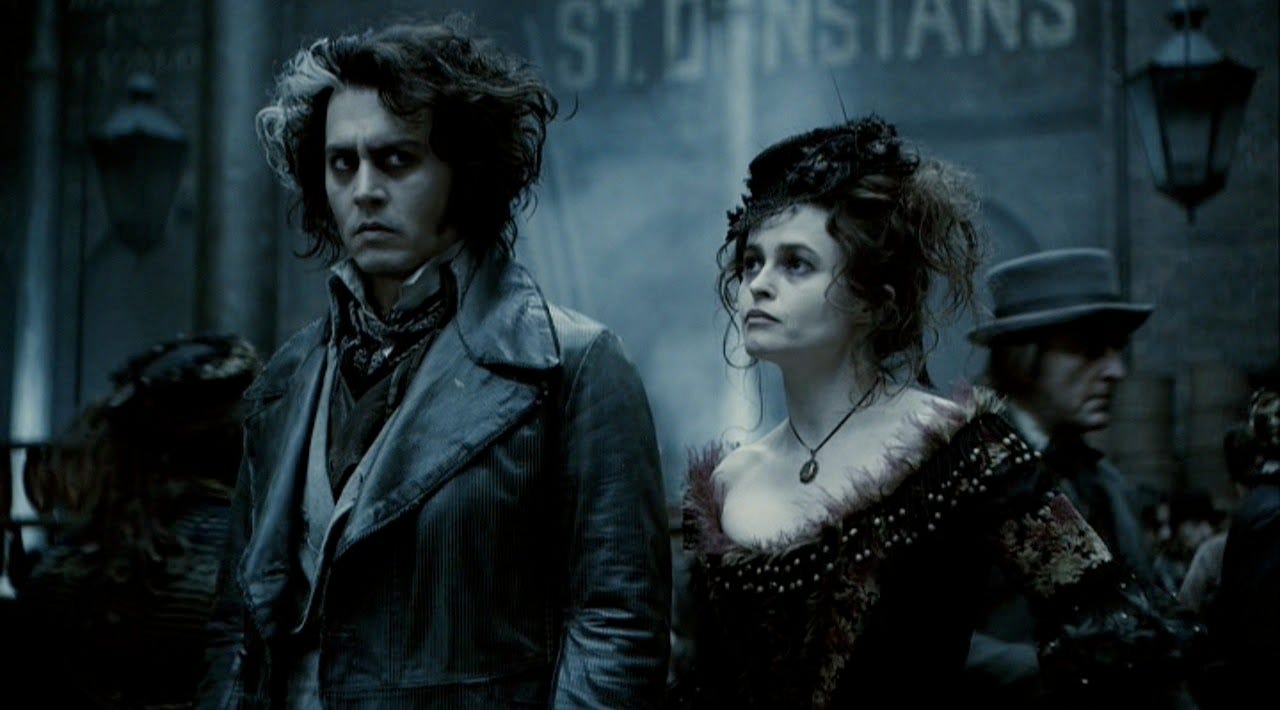
Helena Bonham Carter plays Mrs. Lovett, Todd’s accomplice, whose meat pie shop becomes the gruesome solution to hiding the evidence of Todd’s revenge. The chemistry between Depp and Bonham Carter is palpable, enhancing the film’s darkly comic undertones. The supporting cast, including Alan Rickman and Timothy Spall, contributes to the film’s atmosphere of dread and suspense.
The musical numbers, composed by Stephen Sondheim, are integral to the film’s narrative, allowing Depp and the cast to explore their characters’ psyches through song. Depp’s vocal performance is surprisingly adept, conveying Sweeney Todd’s anguish and rage in a manner that complements the film’s visual and thematic elements. “Sweeney Todd” is a testament to Depp’s ability to challenge himself and inhabit complex characters, further cementing his status as one of his generation’s most talented and versatile actors.

“Sweeney Todd: The Demon Barber of Fleet Street” received critical acclaim for its direction, performances, and musical score, with particular praise for Depp’s leading role. The film’s exploration of themes such as revenge, madness, and the corrupting power of obsession, coupled with its visual flair and musical depth, makes it a unique and compelling entry in Depp’s filmography. It showcases his range as an actor and his willingness to embrace unconventional roles that push the boundaries of mainstream cinema.
5. “Ed Wood” (1994)
“Ed Wood,” directed by Tim Burton, is a biographical film that explores the life of the titular character, Edward D. Wood Jr., an infamous director known for his low-budget films in the 1950s. Johnny Depp’s portrayal of Ed Wood is one of his most memorable performances, showcasing his ability to bring warmth and likability to a character whose enthusiasm and passion for filmmaking far exceeded his talent. This film stands out as a tribute to the underdog and is celebrated for its affectionate portrayal of a man widely considered the worst director of all time.
Depp’s Ed Wood is relentlessly optimistic, donning Angora sweaters and navigating the challenges of Hollywood with an unwavering dedication to his craft, regardless of the criticism he faces. This role allowed Depp to explore the themes of ambition, friendship, and the pursuit of dreams against all odds. His performance is both comedic and touching, capturing Wood’s eccentricities and endearing naivety.
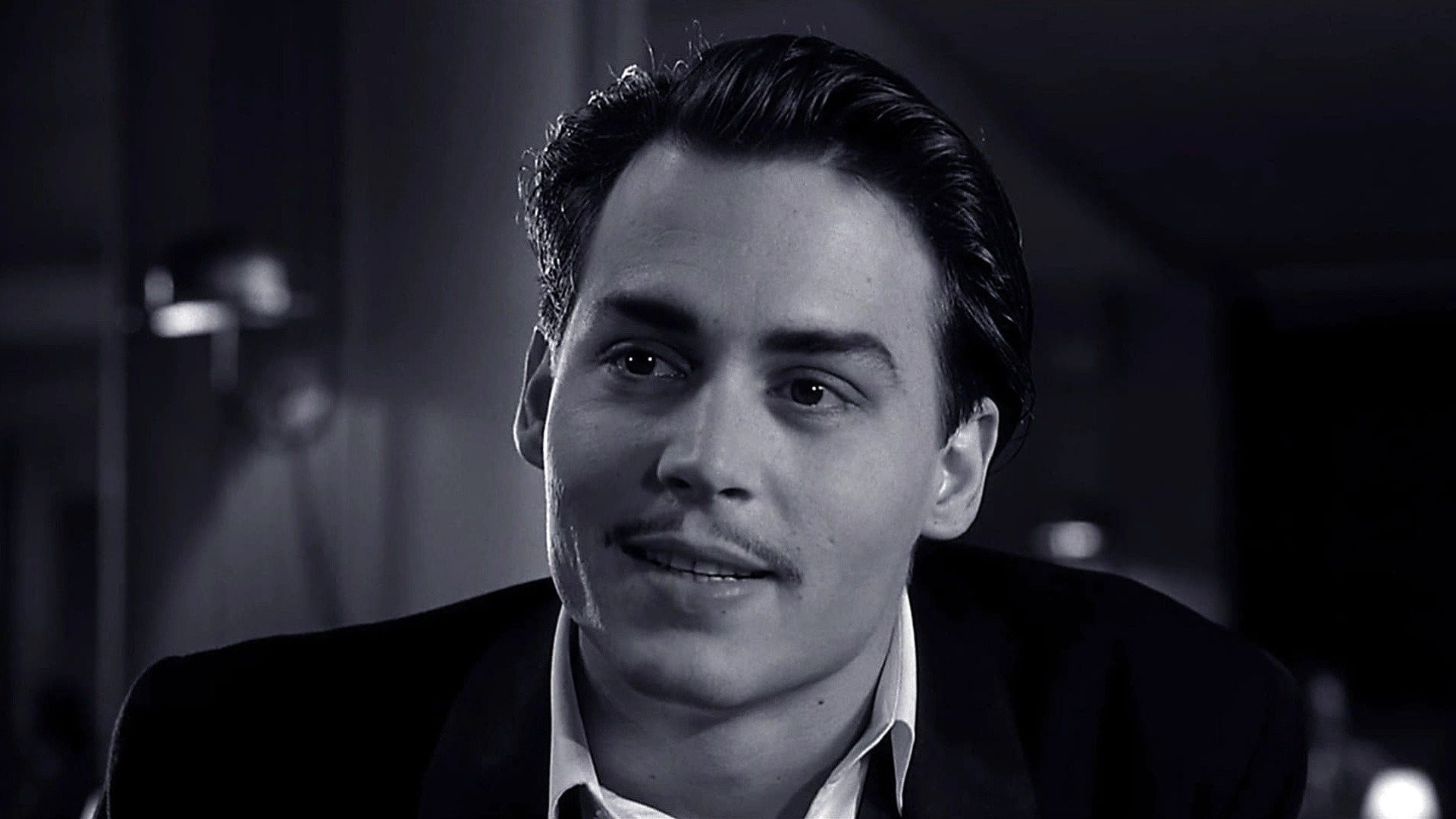
The film is shot in black and white, paying homage to the era and the B-movies that Wood produced. The supporting cast, including Martin Landau as Bela Lugosi, for which he won an Academy Award for Best Supporting Actor, provides a strong backdrop to Johnny Depp’s performance, enriching the narrative and highlighting the complexities of Wood’s relationships with those around him.
“Ed Wood” delves into Wood’s personal and professional life, including his relationship with Lugosi, his struggles to finance his projects, and his determination to pursue his passion despite widespread derision. The film balances humor with poignancy, offering a compassionate look at its subjects. Johnny Depp’s ability to humanize Wood, presenting him as a lovable outsider rather than a figure of ridicule, is central to the film’s success.

Critically acclaimed, “Ed Wood” is considered one of Burton and Depp’s finest collaborations, praised for its direction, screenplay, and performances. The film is a celebration of the outsider, reflecting Burton and Depp’s status as Hollywood eccentrics who have carved unique paths in the industry. “Ed Wood” remains a testament to Depp’s range as an actor and his capacity to imbue his characters with depth, humanity, and a sense of dignity, regardless of their perceived failures or successes.
6. “Sleepy Hollow” (1999)
“Sleepy Hollow,” directed by Tim Burton, presents a darkly atmospheric adaptation of Washington Irving’s classic tale, “The Legend of Sleepy Hollow.” Johnny Depp stars as Ichabod Crane, a New York City police constable sent to the titular village to investigate a series of mysterious beheadings. This film showcases Johnny Depp in a role that blends elements of horror, fantasy, and detective fiction, offering a unique twist on the traditional gothic hero. Depp’s portrayal of Crane as a scientifically minded investigator with a squeamish disposition and a deep-seated fear of the supernatural provides a compelling and often humorous counterpoint to the film’s darker themes.
Johnny Depp’s performance is characterized by a blend of earnestness and eccentricity, as Crane employs forensic investigation techniques that are innovative for the late 18th-century setting. His interactions with the townsfolk and the haunting landscape of Sleepy Hollow reveal a character who is both rational and deeply vulnerable. This vulnerability becomes a central theme as Crane confronts both his past traumas and the supernatural forces at work in the village.
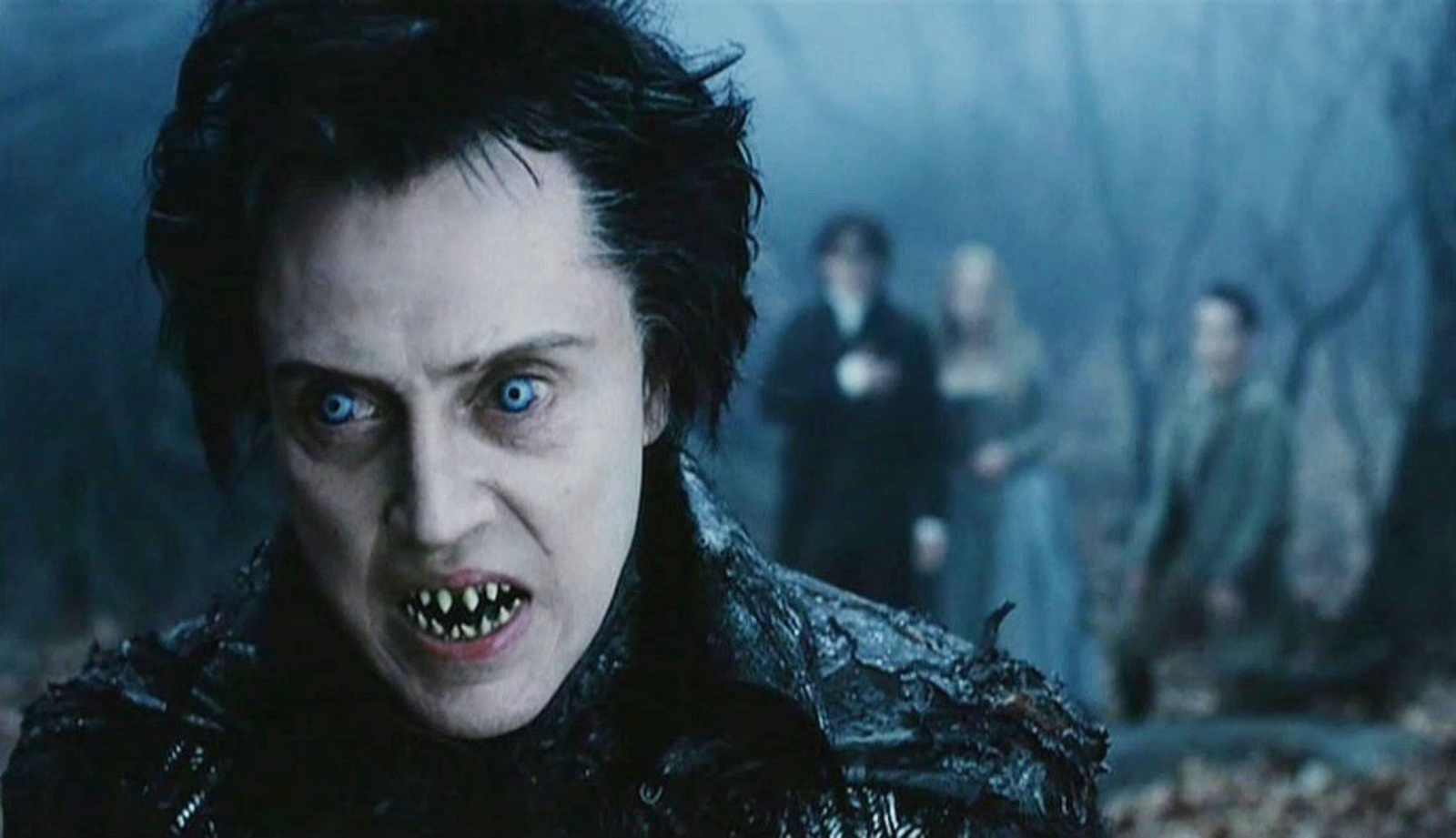
The film’s visual style is quintessentially Burton, with a moody and stylized aesthetic that brings the eerie world of Sleepy Hollow to life. The use of practical effects and atmospheric cinematography creates a sense of foreboding and dread that complements the narrative’s suspenseful elements. The supporting cast, including Christina Ricci, Miranda Richardson, and Christopher Walken as the terrifying Headless Horseman, enhances the film’s gothic atmosphere and provides a rich backdrop for Johnny Depp’s performance.
“Sleepy Hollow” was both a critical and commercial success, praised for its imaginative reinterpretation of the source material, striking visuals, and Johnny Depp’s lead performance. The film won an Academy Award for Best Art Direction, highlighting its achievement in creating a visually stunning gothic landscape. Depp’s ability to anchor the film with a performance that balances horror with a nuanced exploration of fear and rationality showcases his versatility as an actor and his continued collaboration with Burton in bringing unique and unconventional characters to the screen.

“Sleepy Hollow” remains a standout film in Johnny Depp’s career for its combination of horror, fantasy, and detective story elements, all grounded by Depp’s compelling portrayal of Ichabod Crane. It exemplifies Depp’s talent for infusing his characters with complexity and humanity, making “Sleepy Hollow” a memorable and enduring entry in the canon of gothic cinema.
7. “Charlie and the Chocolate Factory” (2005)
“Charlie and the Chocolate Factory,” directed by Tim Burton, is a vibrant and imaginative adaptation of Roald Dahl’s beloved novel. Johnny Depp stars as Willy Wonka, the eccentric and reclusive candy manufacturer who opens his factory’s doors to five lucky children. Johnny Depp’s interpretation of Wonka is a departure from the character’s previous incarnations, presenting a figure who is both whimsically childlike and tinged with a sense of melancholy and detachment. This performance adds layers to the character, exploring the complexities beneath his quirky exterior.
Johnny Depp’s portrayal is characterized by its idiosyncrasies, including a unique vocal delivery and a visually striking costume design, which combine to create a memorable and distinctive version of the chocolate magnate. His performance delves into the psychological aspects of Wonka, suggesting a backstory filled with loneliness and alienation, which is further explored through flashbacks. This approach provides depth to the narrative, offering a commentary on the consequences of isolation and the importance of family.
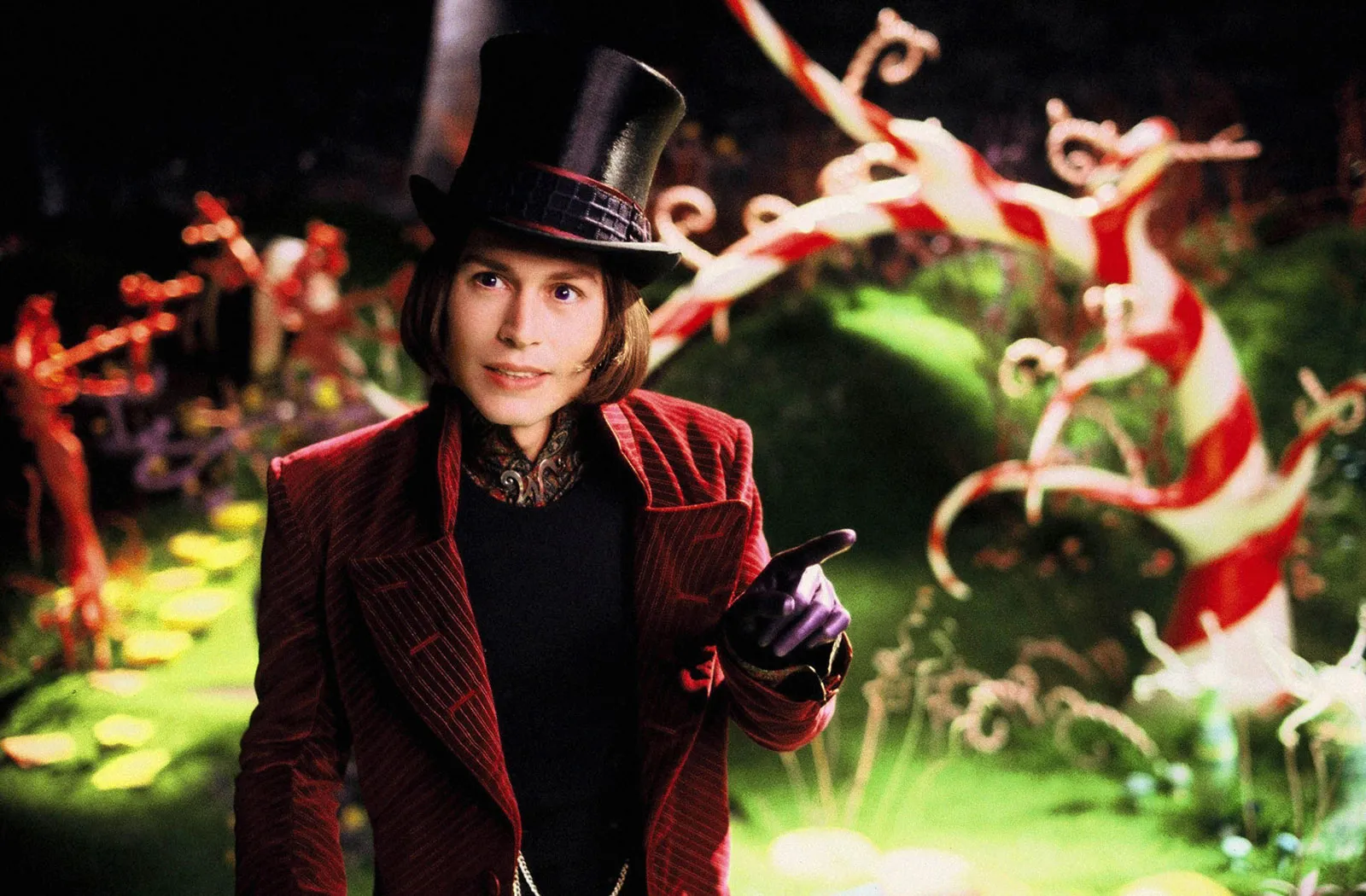
The film itself is a feast for the senses, with Burton’s signature visual flair bringing the magical world of the chocolate factory to life. The sets are elaborate and colorful, capturing the whimsical essence of Dahl’s story while infusing it with Burton and Depp’s unique sensibilities. The Oompa-Loompas, played by Deep Roy in multiple roles, provide musical commentary on the children’s behavior, adding a layer of humor and moral reflection to the story.
“Charlie and the Chocolate Factory” was a commercial success, appealing to both children and adults with its blend of fantasy, humor, and a touch of darkness. The film’s visual effects, art direction, and costumes were particularly praised, alongside Johnny Depp’s performance, which stands out for its creativity and depth. His Willy Wonka is both enigmatic and endearing, capturing the imagination of audiences and leaving a lasting impact on the portrayal of the character.

The film also stars Freddie Highmore as Charlie Bucket, whose performance as the kind-hearted boy from a poor family provides a grounding contrast to Depp’s Wonka. Their developing relationship throughout the film highlights themes of kindness, generosity, and the value of staying true to oneself. “Charlie and the Chocolate Factory” is a testament to Depp’s ability to create complex, unforgettable characters and stands as a highlight in his collaboration with Tim Burton, showcasing their shared vision for storytelling that combines the dark with the whimsical.
8. “Public Enemies” (2009)
“Public Enemies,” directed by Michael Mann, represents a shift in Johnny Depp’s filmography towards a more grounded and historically oriented narrative. In this film, Johnny Depp portrays the notorious American bank robber John Dillinger during the Great Depression. Unlike the fantastical characters that Depp is often associated with, his role as Dillinger showcases his ability to embody a real-life figure with authenticity and depth, bringing to life the charisma and complexity of the infamous outlaw.
The film is set in the 1930s, a period marked by economic hardship and the rise of high-profile gangsters who captured the American public’s imagination. Johnny Depp’s portrayal of Dillinger is nuanced, balancing the criminal’s bold and public defiance of the law with moments of vulnerability and introspection. This performance highlights Depp’s versatility as an actor, demonstrating his capacity to delve into a character’s psyche and convey the multifaceted nature of their personality.
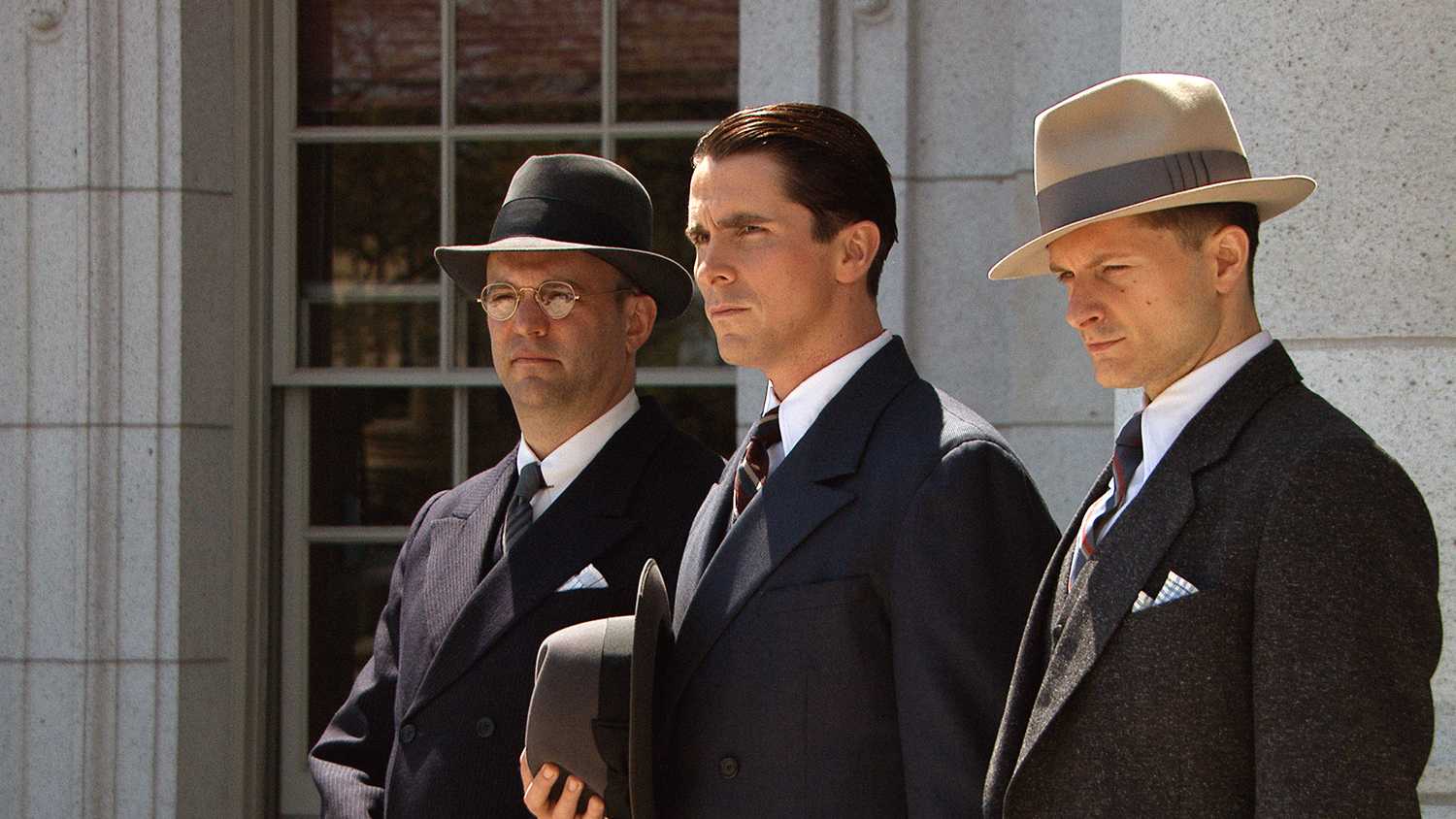
“Public Enemies” is characterized by its gritty realism and attention to historical detail, from the costumes and set design to the use of period-appropriate firearms. Michael Mann’s direction employs a digital cinematography style that brings a contemporary feel to the historical setting, creating a sense of immediacy and immersion. The film’s action sequences, particularly the bank robberies and shootouts, are executed with precision and intensity, contributing to the film’s dynamic pacing.
The supporting cast, including Christian Bale as FBI agent Melvin Purvis and Marion Cotillard as Dillinger’s love interest Billie Frechette, delivers strong performances that complement Johnny Depp’s portrayal of Dillinger. The cat-and-mouse dynamic between Dillinger and Purvis adds a layer of tension to the narrative, exploring themes of loyalty, betrayal, and the elusive nature of freedom.
“Public Enemies” received praise for its performances, especially Johnny Depp’s, and its meticulous recreation of the era. The film offers a glimpse into the life of one of America’s most famous criminals, providing insight into the motivations and contradictions that defined Dillinger’s life. Depp’s ability to inhabit such a complex figure and bring a sense of humanity to the role is a testament to his skill as an actor.

While “Public Enemies” may not feature the fantastical elements of Depp’s other notable roles, it stands as a significant work in his career for its exploration of historical narrative through a contemporary lens. The film underscores Depp’s range and his ability to engage audiences with performances that traverse the spectrum from the whimsical to the starkly realistic.
9. Donnie Brasco” (1997)
“Donnie Brasco” stands as a pivotal film in Johnny Depp’s career, showcasing his ability to navigate complex emotional landscapes and embody deeply nuanced characters. Directed by Mike Newell, this crime drama film is based on the true story of Joseph D. Pistone, an FBI agent who infiltrated the Bonanno crime family in New York City during the 1970s under the alias “Donnie Brasco.” Depp’s portrayal of Pistone/Brasco is a masterclass in subtlety and restraint, offering a glimpse into the psychological toll of deep undercover work.
The film explores themes of identity, loyalty, and the blurred lines between right and wrong. Johnny Depp’s performance captures the internal conflict of a man torn between his duties as an FBI agent and his growing bond with the gangsters he is meant to bring down. His interactions with Lefty Ruggiero, a veteran hitman played by Al Pacino, form the emotional core of the film. The relationship between Brasco and Lefty is complex and layered, highlighting Depp’s skill in portraying vulnerability and depth within the context of a crime drama.
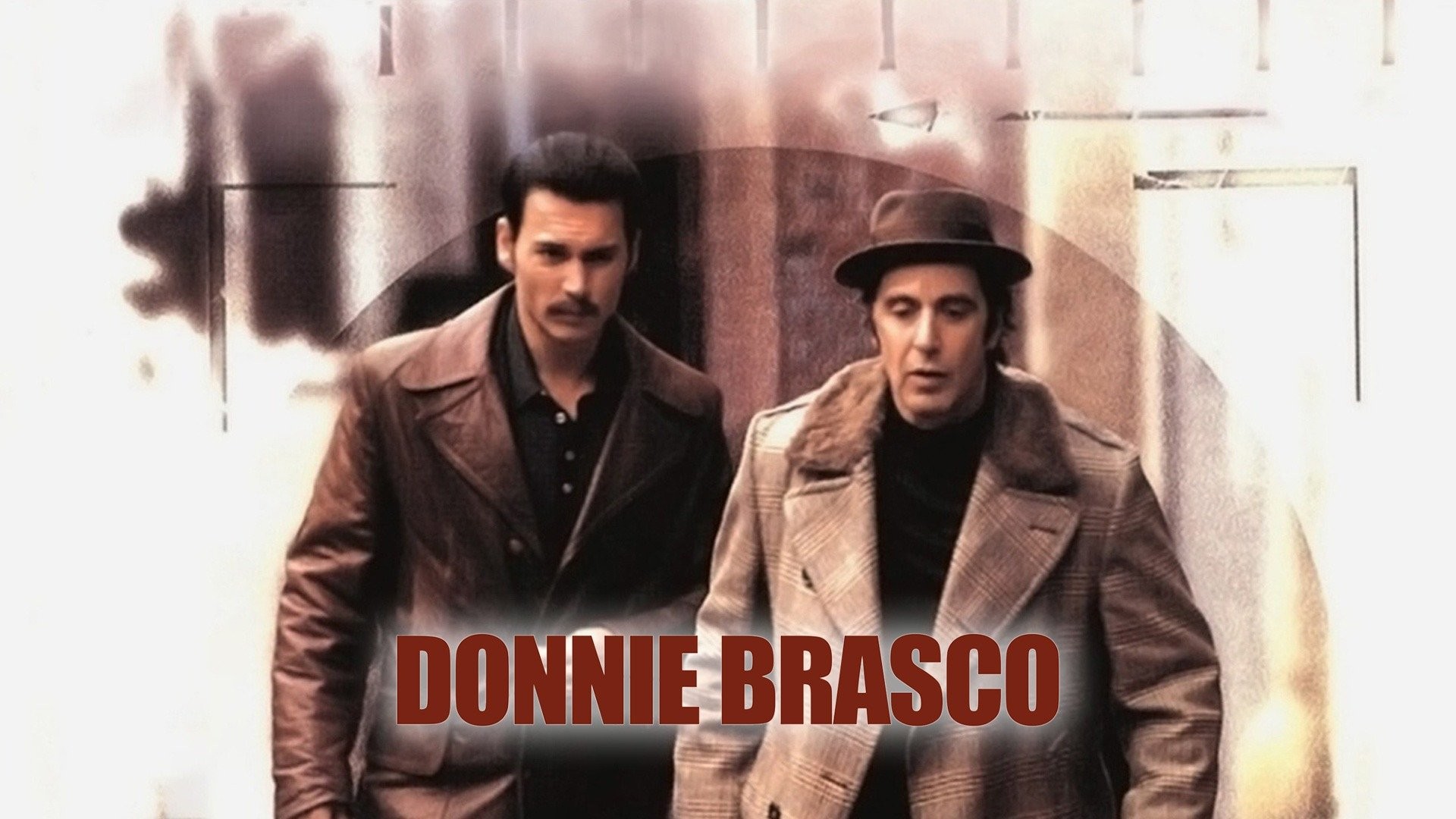
“Donnie Brasco” distinguishes itself from other films in the genre by focusing on the personal costs of undercover work, rather than glorifying the criminal lifestyle. Johnny Depp’s nuanced performance is crucial to this portrayal, offering a realistic look at the sacrifices and moral dilemmas faced by undercover agents. The film’s gritty realism, combined with strong performances from the cast, creates a compelling narrative that resonates with audiences.
The film was both a critical and commercial success, praised for its storytelling, direction, and the chemistry between Depp and Pacino. “Donnie Brasco” further established Johnny Depp as an actor capable of tackling a wide range of roles, from the fantastical to the intensely realistic. His portrayal of Joseph Pistone/Donnie Brasco is often cited as one of his finest performances, demonstrating his ability to bring depth and humanity to his characters.
“Donnie Brasco” contributes to the rich tapestry of Johnny Depp’s filmography, showcasing his versatility as an actor and his commitment to exploring the complexities of the human experience. The film remains a standout in the crime drama genre, celebrated for its authenticity, emotional depth, and Depp’s compelling portrayal of a man caught between two worlds.

This exploration of Johnny Depp’s top 10 movies has revealed the breadth of his talent and the diversity of roles he has undertaken throughout his career. From the fantastical and whimsical to the dark and complex, Depp’s filmography is a testament to his versatility as an actor and his ability to bring depth and nuance to a wide range of characters. Each film discussed showcases a different facet of Depp’s skill set, from his comedic timing and physicality to his emotional depth and ability to convey complex psychological states.
10.”The Rum Diary” (2011)
It is a film that stands out within Johnny Depp’s diverse filmography, not only for its vivid portrayal of a journalist’s adventures in Puerto Rico but also for its deeper exploration of freedom, corruption, and the search for meaning. Directed by Bruce Robinson and based on the novel of the same name by Hunter S. Thompson, the movie offers a semi-autobiographical glimpse into Thompson’s early career, with Johnny Depp playing the protagonist, Paul Kemp.
Kemp, an itinerant journalist, finds himself in the vibrant yet tumultuous setting of 1960s Puerto Rico, working for a local newspaper. The narrative weaves through Kemp’s encounters with a colorful cast of characters, including the unscrupulous entrepreneur Sanderson, played by Aaron Eckhart, and the enigmatic Chenault, portrayed by Amber Heard. These interactions expose Kemp to the darker facets of paradise, from exploitative American businessmen to the stark contrasts between the island’s wealthy and impoverished residents.
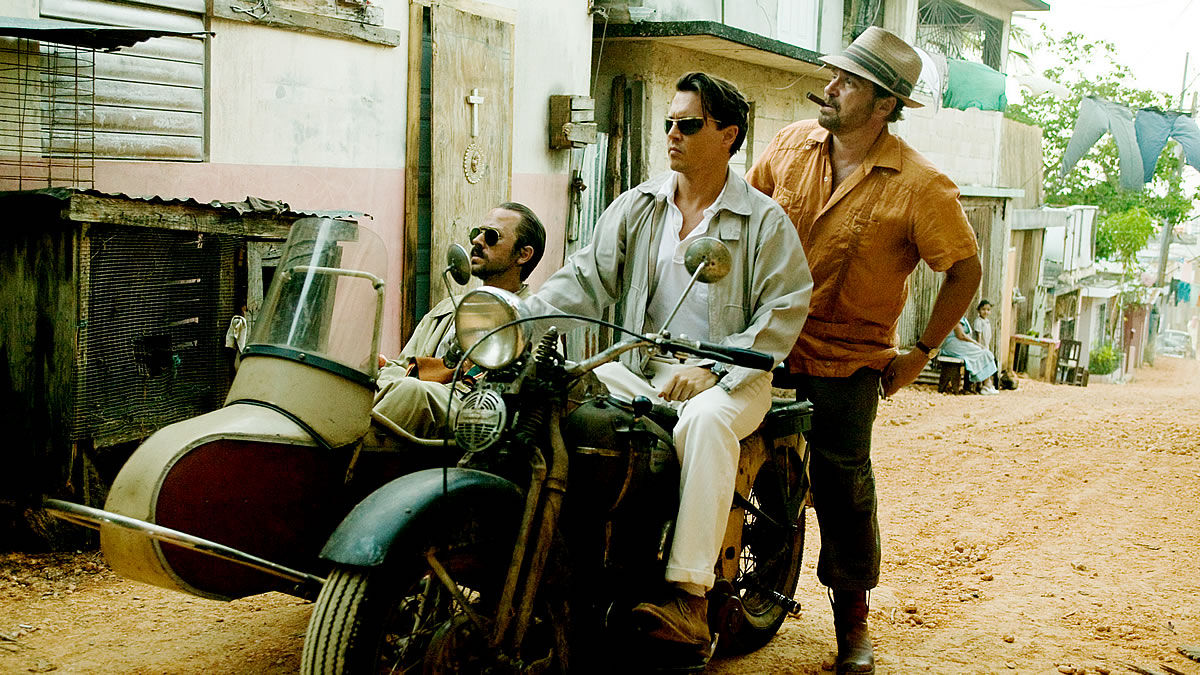
Johnny Depp’s portrayal of Kemp is a highlight of the film, showcasing his ability to embody complex characters with depth and nuance. His performance captures Kemp’s disillusionment and his gradual awakening to the injustices surrounding him. The role mirrors Depp’s penchant for portraying characters who exist on the margins, wrestling with their ideals and the often harsh realities of their worlds.
While “The Rum Diary” may not have achieved the commercial success of some of Depp’s other films, it remains a critical piece of his filmography, offering insight into the actor’s interests and his collaborative relationship with Hunter S. Thompson. The film is a testament to Depp’s range as an actor and his commitment to bringing complex, unconventional stories to the screen.

In essence, “The Rum Diary” is more than just a story about a journalist’s escapades in Puerto Rico; it’s a reflection on the pursuit of truth, the fight against exploitation, and the quest for personal and journalistic integrity. Johnny Depp’s performance, coupled with the film’s rich narrative and aesthetic, makes “The Rum Diary” a compelling watch for those interested in stories that delve into the complexities of the human experience and the challenges of standing up against systemic injustice.
In conclusion
Johnny Depp’s top 10 movies highlight his contributions to the film industry as one of its most talented and versatile actors. His collaborations with directors like Tim Burton have resulted in some of cinema’s most memorable characters, while his forays into more dramatic and historical roles have demonstrated his range and depth as an actor. Through his work, Johnny Depp has left an indelible mark on Hollywood, captivating audiences with his performances and continuing to push the boundaries of his craft.
Through our extensive journey through Johnny Depp’s top 10 movies, it becomes evident that Depp’s career is characterized by remarkable versatility and an unwavering commitment to diving into the depths of complex characters. From the swashbuckling charm of Captain Jack Sparrow in “Pirates of the Caribbean: The Curse of the Black Pearl” to the poignant, introspective portrayal of J.M. Barrie in “Finding Neverland,” Depp has consistently demonstrated an extraordinary ability to transform into a wide array of characters, each with their own unique story to tell.
Through films like “Edward Scissorhands” and “Sweeney Todd: The Demon Barber of Fleet Street,” Depp and director Tim Burton have created a legacy of cinematic magic, blending dark themes with whimsical storytelling. Meanwhile, roles in “Ed Wood” and “Donnie Brasco” showcase Depp’s flair for bringing authenticity and depth to portrayals of real-life figures, revealing the actor’s profound empathy and understanding of human complexity.


